Category: Wearables
-

Sensor, data, and AI-driven primary care
Forward has brought advanced technology to well-care. Patient/Members are integrated into the practice with a baseline screening via body scans, blood and genetic tests. They are then given consumer and medical wearables, which work with proprietary algorithms, for continuous monitoring (and access to data), personalized treatment, and emergency alerts. Physical exam rooms display all of the data…
-
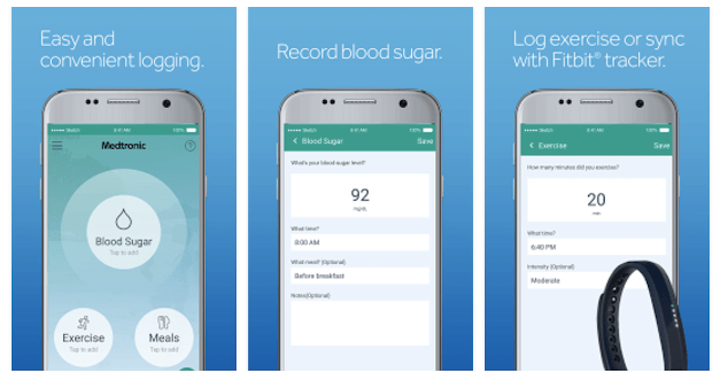
Consumer wearable + medical monitor track exercise’s impact on glucose
Consumer wearables can complement medical devices by integrating activity data into a disease management strategy. Fitbit movement data will now be used with a Medtronic diabetes management tool, with the goal of users predicting the impact of exercise on glucose levels. Diabetics can monitor glucose with Medtronic’s iPro2 system continuously for 6 days. Fitbit data will…
-
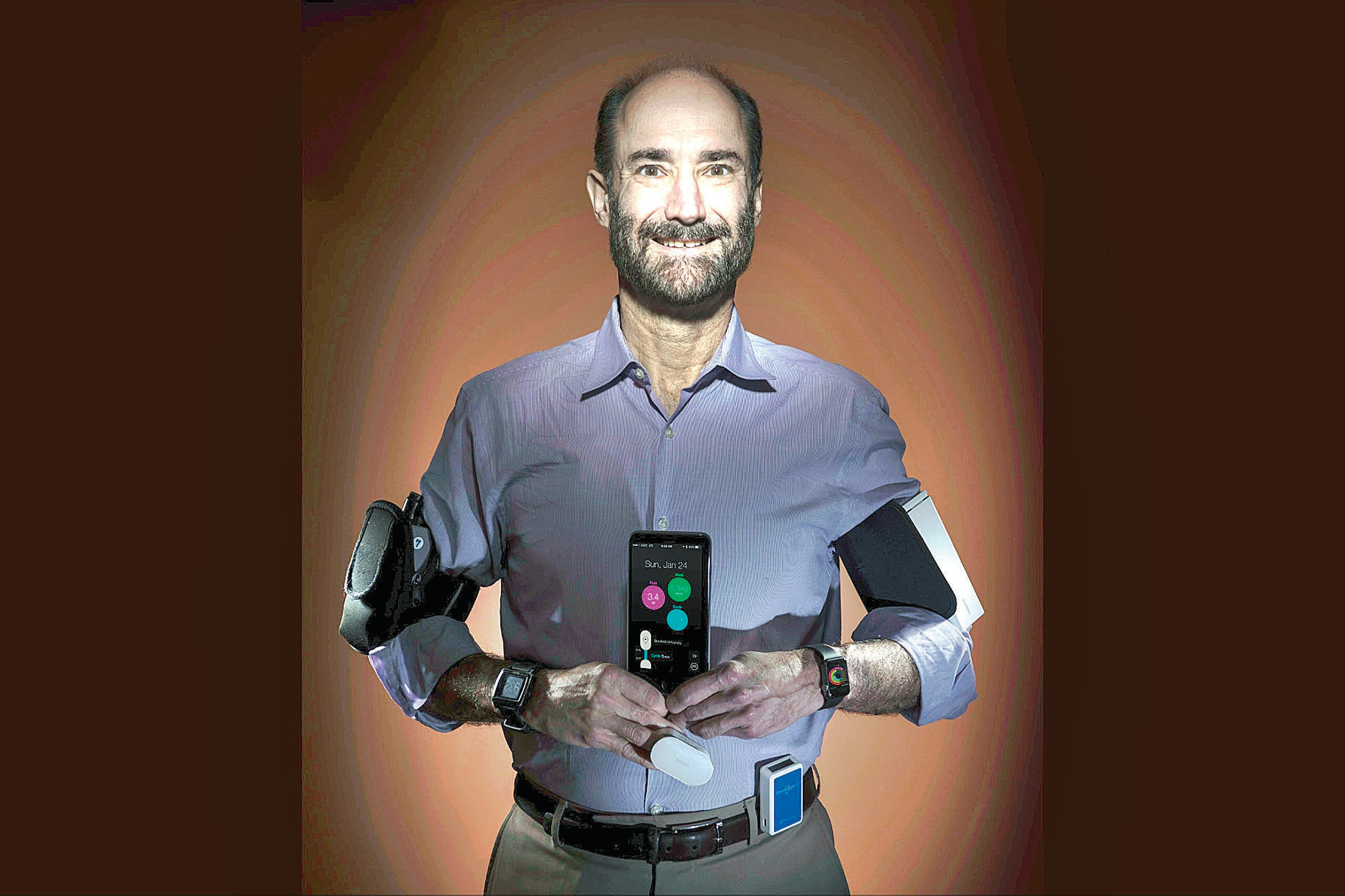
Multiple wearable sensors predict illness
Stanford’s Michael Snyder has published the results of a health wearable study, in which 2 billion measurements were taken from 60 subjects, concluding that such devices can be used to predict illness. Continuous biosensor data, plus blood chemistry, gene expression and other tests, were included. Participants wore 1-7 commercial wearables, which collected more than 250,000…
-
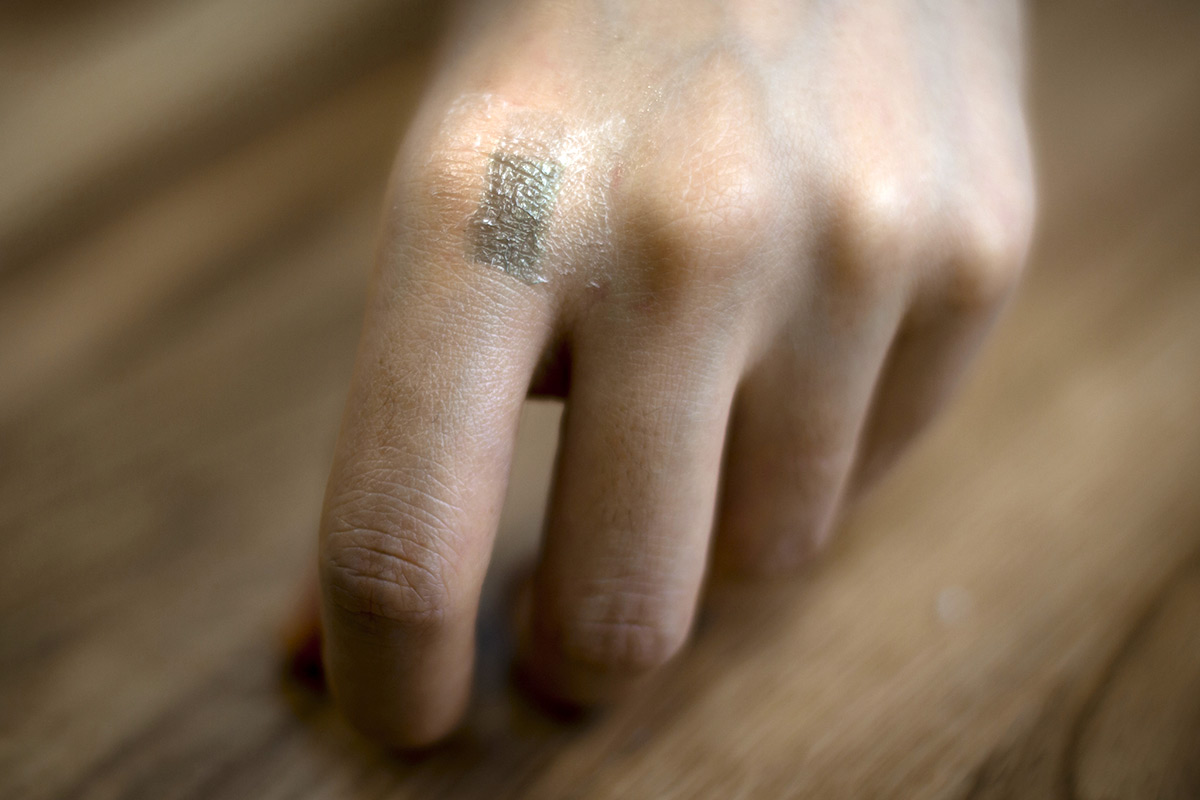
Ultra-flexible transistor for discreet, continuous health monitoring
Stanford professor Zhenan Bao‘s latest bioelectronic innovation has disrupted wearable technology as we know it. The ultra-flexible transistor can be stretched to twice its length, without losing conductivity. Conductors are confined inside an extremely thin, flexible polymer material, ideal for adhesive or tiny wearables. Digital health applications are unlimited — providing discreet, continuous, and…
-
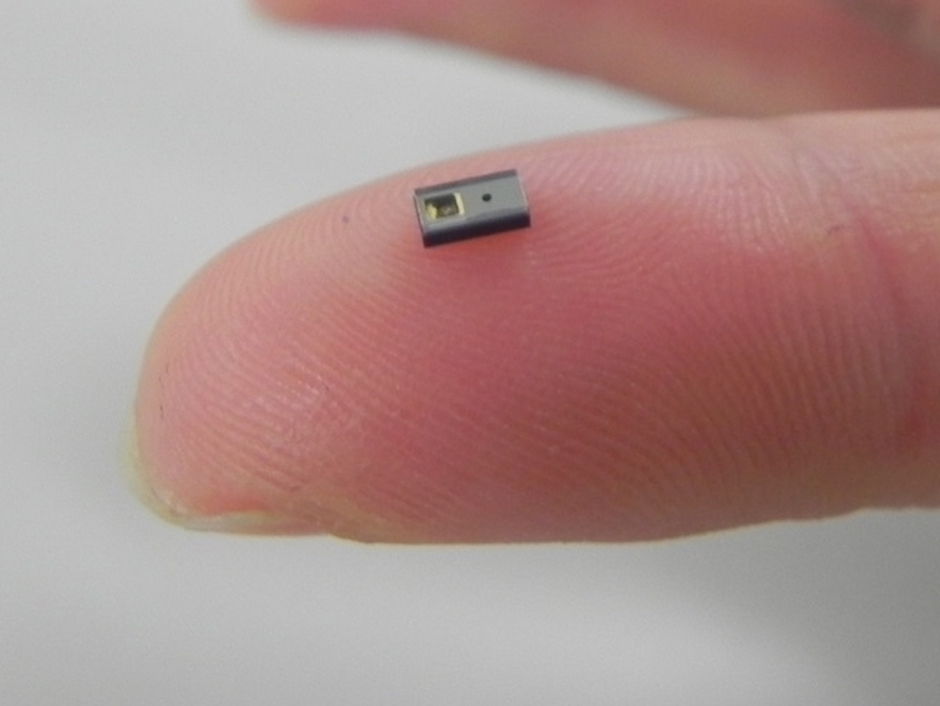
Tiny wearable sensor measures blood flow
Kyocera has developed a tiny optical sensor to measure blood flow volume in subcutaneous tissue, meant to be integrated into a phone or wearable. Potential applications include monitoring stress and preventing dehydration, heat stroke, and altitude sickness. The device will be used in/on an ear, finger or forehead, to measure the velocity-driven frequency of reflected…
-
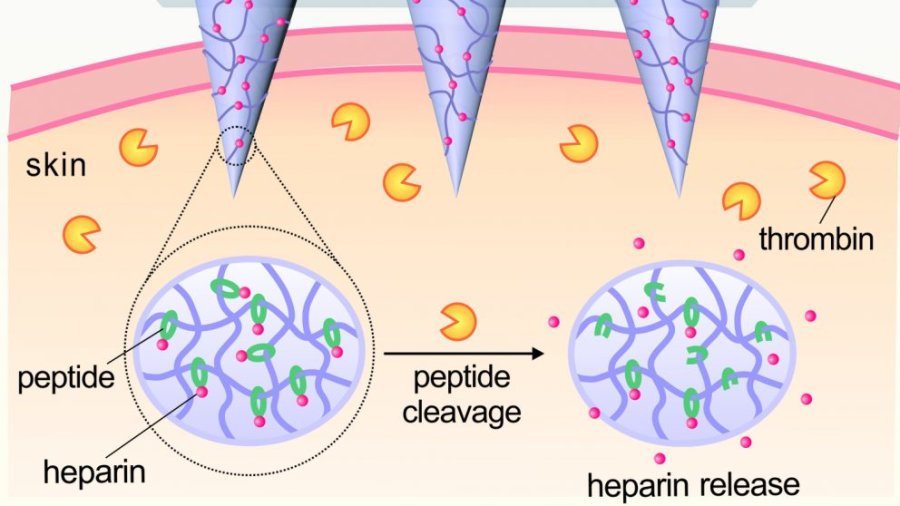
Self regulating patch optimizes blood thinner delivery
UNC and NC State researchers have developed a promising, self-regulating, Heparin releasing patch, meant to optimize levels of the blood thinner in one’s body. It has only been tested on animals, but was found to be more effective at preventing thrombosis than traditional drug delivery methods. Current protocol requires regular blood testing, to prevent hemorrhaging…
-

Cabin sensors, wearables, smart pills to monitor air passenger health
British Airlines has filed a patent application for a system that would monitor when a passenger is awake, asleep, hungry, nervous, hot, cold or uncomfortable. The “system and method for controlling the travel environment for a passenger” encompasses motion-sensing sleep monitors, wearables that track eye movement, heart rate, and temperature, and ingestible health-tracking pills. The…
-
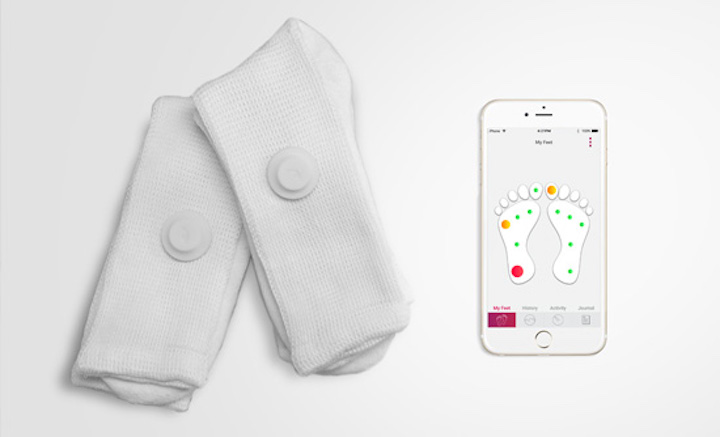
Sensor sock detects diabetic inflammation, sends alerts
Siren Care‘s real-time temperature sensing smart sock is meant to detect foot inflammation in diabetics. The goal is early notification to prevent (difficult to heal) sores and other symptoms of the disease, which can lead to extreme complications. Data is stored in the fabric and in the cloud. An app sends alerts when a temperature event…
-
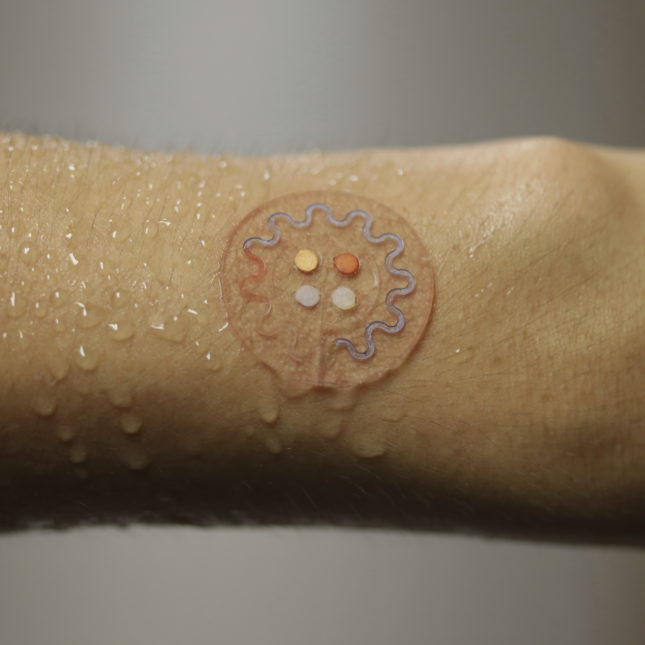
Wearable patch monitors lactate, glucose, and pH in sweat
Northwestern’s John Rogers has developed a wearable, sweat analyzing patch. The flexible microfluidic device uses colorimetric biochemical assays and integrates smartphone image capture analysis to monitor lactate, glucose, chloride ion concentrations, and pH. The wearable, with sports, military, and disease monitoring applications, can be adapted to test tears and saliva. Professor Rogers will be a…
-

Tiny sensor monitors the heart, recognizes speech, enables human-machine interfaces
Northwestern professor John Rogers has released a paper detailing his latest tiny, wearable, flexible, highly accurate health sensor, which monitors the heart, recognizes speech, and can enable human-machine interfaces. Professor Yonggang Huang is the corresponding author. The soft, continuous monitor adheres to any part of the body, detecting mechanical waves that propagate through tissues and fluids…
-
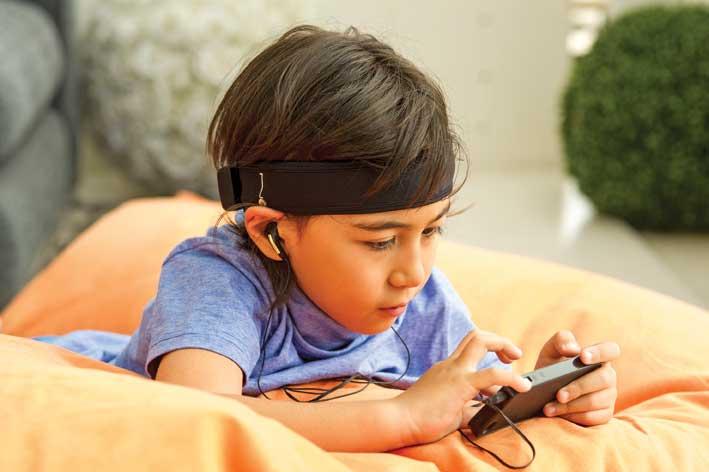
Neurofeedback to suppress delta frequencies in autism
Mente is a neurofeedback system for autistic kids that creates personalized binaural beats, to suppress excessive delta frequencies, using auditory pathways in the brain. Delta waves are typically associated with sleep and closed eyes, but autistic people experience high delta wave frequencies while awake. This could be attributed to a feeling of isolation. The company…
-
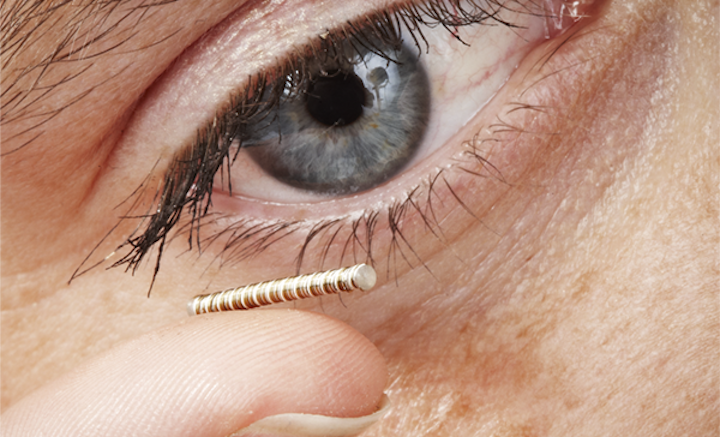
Non-invasive tear sensor continuously monitors glucose
Noviosense is a flexible sensor glucose monitor, worn in a lower eyelid. The wireless, battery-free wearable tracks glucose levels in tears, and continuously sends measurements to one’s phone. One of three electrodes is coated with an immobilized enzyme, which converts glucose into gluconic acid, leaving the co-enzyme FAD reduced to FADH. An oxygen molecule oxidizes the…